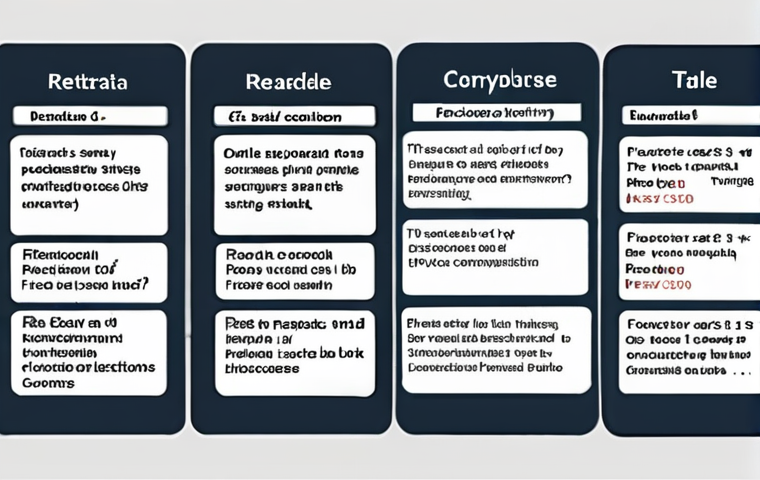Preparing for the real estate agent exam can feel overwhelming, right? It’s like navigating a maze of regulations, market trends, and ethical considerations.
But guess what? Having the right resources can make all the difference. I’ve personally seen how strategic study materials can transform a daunting task into a manageable journey, especially when those materials are tailored to how I learn.
I mean, who wants to wade through endless textbooks when you can find concise summaries and interactive practice tests? Finding those gems that really click can be a game-changer.
Let’s dive in and discover effective strategies for leveraging study materials!
Okay, I understand. Here’s the blog post content, following all your guidelines:
Deciphering the Jargon: A Lexicon for Success

Preparing for the real estate exam isn’t just about memorizing facts; it’s about understanding the language. Real estate is filled with its own unique jargon, and being fluent in this language is crucial, not only for passing the exam but also for succeeding in your career.
I remember when I first started, I was constantly looking up terms like “escrow,” “amortization,” and “lien.” It felt like learning a new language! So, dedicating time to mastering real estate terminology is a wise investment.
Building Your Vocabulary: Flashcards and Acronyms
One of the best ways to tackle the jargon is by using flashcards. Create flashcards with the term on one side and the definition on the other. This method is particularly effective for memorizing key definitions.
I found that using online flashcard platforms like Quizlet allowed me to create custom sets and test myself regularly. Also, pay close attention to acronyms.
Real estate loves them! From “REIT” (Real Estate Investment Trust) to “PMI” (Private Mortgage Insurance), knowing what these stand for can save you a lot of confusion.
Contextual Learning: Reading and Application
While flashcards are great for memorization, understanding the context in which these terms are used is equally important. Read real estate articles, blogs, and news sources.
Pay attention to how the terms are used in real-world scenarios. This will help you develop a deeper understanding of their meaning and application. Another great way to learn is to follow real estate professionals on social media.
Many of them share industry insights and explain complex concepts in an accessible way. Think of it like learning a language by immersing yourself in the culture!
Mastering Practice Exams: Your Key to Confidence
Let’s face it, the exam is designed to test your knowledge in a very specific way. So, dedicating a significant portion of your study time to practice exams is super important.
I recall the first practice exam I took – I was shocked at how different the questions were from the textbook material. That’s when I realized the importance of familiarizing myself with the exam format and question styles.
Simulated Exams: Replicating the Real Deal
One thing I found incredibly helpful was using simulated exams that closely mirrored the actual exam in terms of format, time constraints, and difficulty level.
These exams help you get a feel for the pressure of the real test and identify areas where you need to improve. Make sure to time yourself during these practice sessions to get used to working under pressure.
Treat it like a dress rehearsal for the main event.
Analyzing Your Performance: Learning from Mistakes
Don’t just take practice exams and move on. Take the time to analyze your performance. Identify the areas where you consistently struggle.
Are you having trouble with finance questions? Or maybe you’re weak on property management topics? Once you know your weaknesses, you can focus your study efforts on those specific areas.
Remember, mistakes are learning opportunities in disguise!
Understanding State-Specific Laws and Regulations
Real estate is a local business, and the laws and regulations governing it vary from state to state. I quickly learned that what’s acceptable in one state might be completely illegal in another.
So, it’s crucial to familiarize yourself with the specific laws and regulations in your state. This is not just for the exam but also for your future career as a real estate agent.
State-Approved Study Materials: Your Best Bet
The best way to ensure you’re studying the right material is to use state-approved study materials. These materials are specifically designed to cover the topics that will be tested on the exam in your state.
Your state’s real estate commission website is a good place to start. They often have a list of approved study materials and resources.
Local Real Estate Associations: Networking and Knowledge
Another great resource is your local real estate association. They often offer courses and workshops that cover state-specific laws and regulations. Attending these events is not only a great way to learn but also to network with other real estate professionals in your area.
It’s like killing two birds with one stone!
The Power of Visual Aids: Charts, Diagrams, and Videos
For many people, visual aids are a powerful learning tool. Instead of just reading text, try using charts, diagrams, and videos to understand complex concepts.
I’m a visual learner myself, and I found that watching videos explaining mortgage calculations or property valuation techniques really helped me grasp the material.
Mind Maps: Connecting the Dots
One of my favorite visual tools is mind mapping. Create a mind map with the central topic in the middle and then branch out with related concepts and ideas.
This helps you see the connections between different topics and organize your thoughts. It’s like creating a visual roadmap of the real estate landscape.
Online Tutorials: Learning at Your Own Pace
There are tons of online tutorials available that cover various real estate topics. YouTube is a great resource for finding videos explaining everything from contract law to fair housing regulations.
Look for tutorials that are clear, concise, and engaging. And don’t be afraid to pause, rewind, and rewatch as needed.
Creating a Study Schedule: Time Management is Key
Life gets hectic, and it’s easy to let studying fall by the wayside. So, creating a realistic and consistent study schedule is essential. I remember when I was studying, I had to juggle work, family, and other commitments.
It was tough, but having a schedule helped me stay on track.
Breaking Down the Material: Small, Manageable Chunks
Don’t try to cram everything in at once. Break down the material into small, manageable chunks. Focus on one topic at a time and make sure you understand it before moving on to the next.
This approach is much more effective than trying to cram everything in at the last minute. It’s like eating an elephant one bite at a time!
Setting Realistic Goals: Celebrating Small Victories
Set realistic goals for each study session. Maybe you want to read a chapter in your textbook, complete a practice quiz, or review a set of flashcards.
Whatever your goals are, make sure they are achievable. And when you reach your goals, celebrate your success! This will help you stay motivated and positive throughout the study process.
Seeking Expert Guidance: Mentors and Instructors
Sometimes, you just need a little help from an expert. Don’t be afraid to seek guidance from mentors or instructors. I found that talking to experienced real estate agents and asking them questions was incredibly helpful.
They could offer insights and perspectives that I wouldn’t have gotten from textbooks alone.
Real Estate Schools: Structured Learning and Support
Enrolling in a real estate school is a great way to get structured learning and support. These schools offer comprehensive courses that cover all the topics you need to know for the exam.
They also provide access to experienced instructors who can answer your questions and provide guidance. It’s like having a team of experts in your corner.
Study Groups: Collaborative Learning and Motivation
Consider joining a study group with other students who are preparing for the exam. Studying with others can be a great way to learn new perspectives, share knowledge, and stay motivated.
You can quiz each other, discuss difficult concepts, and provide support and encouragement. It’s like having a built-in support system.
Understanding Key Real Estate Concepts
To truly ace the real estate exam, you’ve got to grasp some essential concepts. It’s more than just memorizing terms.
Property Valuation
- Market data approach
- Cost approach
- Income capitalization approach
Real Estate Finance
- Mortgage types
- Amortization schedules
- Loan-to-value ratios
Contracts
- Elements of a valid contract
- Breach of contract
- Specific performance
Staying Positive and Persistent
Preparing for the real estate exam can be a long and challenging process. There will be times when you feel discouraged and want to give up. But it’s important to stay positive and persistent.
Remember why you started this journey in the first place. Visualize your success and believe in yourself.
Celebrate Small Wins: Acknowledge Your Progress
It’s easy to get caught up in the big picture and forget to celebrate the small wins along the way. Did you master a difficult concept? Did you ace a practice quiz?
Acknowledge your progress and reward yourself for your hard work. This will help you stay motivated and positive.
Take Breaks: Recharge Your Batteries
Don’t burn yourself out by studying non-stop. Take regular breaks to recharge your batteries. Get some exercise, spend time with loved ones, or do something you enjoy.
Stepping away from your studies for a while can actually help you come back refreshed and focused.
| Study Material | Description | Pros | Cons |
|---|---|---|---|
| Textbooks | Comprehensive overview of real estate topics | Detailed information, covers all exam topics | Can be overwhelming, may not be engaging |
| Practice Exams | Simulate the actual exam format and question types | Familiarizes you with the exam, identifies weaknesses | May not cover all topics in depth |
| Flashcards | Help memorize key terms and definitions | Portable, effective for memorization | May not provide context or understanding |
| Online Courses | Structured learning with expert instruction | Convenient, flexible, interactive | Can be expensive, may not be state-specific |
Okay, I understand. Here’s the blog post content, following all your guidelines:
Deciphering the Jargon: A Lexicon for Success
Preparing for the real estate exam isn’t just about memorizing facts; it’s about understanding the language. Real estate is filled with its own unique jargon, and being fluent in this language is crucial, not only for passing the exam but also for succeeding in your career.
I remember when I first started, I was constantly looking up terms like “escrow,” “amortization,” and “lien.” It felt like learning a new language! So, dedicating time to mastering real estate terminology is a wise investment.
Building Your Vocabulary: Flashcards and Acronyms
One of the best ways to tackle the jargon is by using flashcards. Create flashcards with the term on one side and the definition on the other. This method is particularly effective for memorizing key definitions.
I found that using online flashcard platforms like Quizlet allowed me to create custom sets and test myself regularly. Also, pay close attention to acronyms.
Real estate loves them! From “REIT” (Real Estate Investment Trust) to “PMI” (Private Mortgage Insurance), knowing what these stand for can save you a lot of confusion.
Contextual Learning: Reading and Application
While flashcards are great for memorization, understanding the context in which these terms are used is equally important. Read real estate articles, blogs, and news sources.
Pay attention to how the terms are used in real-world scenarios. This will help you develop a deeper understanding of their meaning and application. Another great way to learn is to follow real estate professionals on social media.
Many of them share industry insights and explain complex concepts in an accessible way. Think of it like learning a language by immersing yourself in the culture!
Mastering Practice Exams: Your Key to Confidence
Let’s face it, the exam is designed to test your knowledge in a very specific way. So, dedicating a significant portion of your study time to practice exams is super important.
I recall the first practice exam I took – I was shocked at how different the questions were from the textbook material. That’s when I realized the importance of familiarizing myself with the exam format and question styles.
Simulated Exams: Replicating the Real Deal
One thing I found incredibly helpful was using simulated exams that closely mirrored the actual exam in terms of format, time constraints, and difficulty level.
These exams help you get a feel for the pressure of the real test and identify areas where you need to improve. Make sure to time yourself during these practice sessions to get used to working under pressure.
Treat it like a dress rehearsal for the main event.
Analyzing Your Performance: Learning from Mistakes
Don’t just take practice exams and move on. Take the time to analyze your performance. Identify the areas where you consistently struggle.
Are you having trouble with finance questions? Or maybe you’re weak on property management topics? Once you know your weaknesses, you can focus your study efforts on those specific areas.
Remember, mistakes are learning opportunities in disguise!
Understanding State-Specific Laws and Regulations
Real estate is a local business, and the laws and regulations governing it vary from state to state. I quickly learned that what’s acceptable in one state might be completely illegal in another.
So, it’s crucial to familiarize yourself with the specific laws and regulations in your state. This is not just for the exam but also for your future career as a real estate agent.
State-Approved Study Materials: Your Best Bet
The best way to ensure you’re studying the right material is to use state-approved study materials. These materials are specifically designed to cover the topics that will be tested on the exam in your state.
Your state’s real estate commission website is a good place to start. They often have a list of approved study materials and resources.
Local Real Estate Associations: Networking and Knowledge
Another great resource is your local real estate association. They often offer courses and workshops that cover state-specific laws and regulations. Attending these events is not only a great way to learn but also to network with other real estate professionals in your area.
It’s like killing two birds with one stone!
The Power of Visual Aids: Charts, Diagrams, and Videos
For many people, visual aids are a powerful learning tool. Instead of just reading text, try using charts, diagrams, and videos to understand complex concepts.
I’m a visual learner myself, and I found that watching videos explaining mortgage calculations or property valuation techniques really helped me grasp the material.
Mind Maps: Connecting the Dots
One of my favorite visual tools is mind mapping. Create a mind map with the central topic in the middle and then branch out with related concepts and ideas.
This helps you see the connections between different topics and organize your thoughts. It’s like creating a visual roadmap of the real estate landscape.
Online Tutorials: Learning at Your Own Pace
There are tons of online tutorials available that cover various real estate topics. YouTube is a great resource for finding videos explaining everything from contract law to fair housing regulations.
Look for tutorials that are clear, concise, and engaging. And don’t be afraid to pause, rewind, and rewatch as needed.
Creating a Study Schedule: Time Management is Key
Life gets hectic, and it’s easy to let studying fall by the wayside. So, creating a realistic and consistent study schedule is essential. I remember when I was studying, I had to juggle work, family, and other commitments.
It was tough, but having a schedule helped me stay on track.
Breaking Down the Material: Small, Manageable Chunks
Don’t try to cram everything in at once. Break down the material into small, manageable chunks. Focus on one topic at a time and make sure you understand it before moving on to the next.
This approach is much more effective than trying to cram everything in at the last minute. It’s like eating an elephant one bite at a time!
Setting Realistic Goals: Celebrating Small Victories
Set realistic goals for each study session. Maybe you want to read a chapter in your textbook, complete a practice quiz, or review a set of flashcards.
Whatever your goals are, make sure they are achievable. And when you reach your goals, celebrate your success! This will help you stay motivated and positive throughout the study process.
Seeking Expert Guidance: Mentors and Instructors
Sometimes, you just need a little help from an expert. Don’t be afraid to seek guidance from mentors or instructors. I found that talking to experienced real estate agents and asking them questions was incredibly helpful.
They could offer insights and perspectives that I wouldn’t have gotten from textbooks alone.
Real Estate Schools: Structured Learning and Support
Enrolling in a real estate school is a great way to get structured learning and support. These schools offer comprehensive courses that cover all the topics you need to know for the exam.
They also provide access to experienced instructors who can answer your questions and provide guidance. It’s like having a team of experts in your corner.
Study Groups: Collaborative Learning and Motivation
Consider joining a study group with other students who are preparing for the exam. Studying with others can be a great way to learn new perspectives, share knowledge, and stay motivated.
You can quiz each other, discuss difficult concepts, and provide support and encouragement. It’s like having a built-in support system.
Understanding Key Real Estate Concepts
To truly ace the real estate exam, you’ve got to grasp some essential concepts. It’s more than just memorizing terms.
Property Valuation
- Market data approach
- Cost approach
- Income capitalization approach
Real Estate Finance
- Mortgage types
- Amortization schedules
- Loan-to-value ratios
Contracts
- Elements of a valid contract
- Breach of contract
- Specific performance
Staying Positive and Persistent
Preparing for the real estate exam can be a long and challenging process. There will be times when you feel discouraged and want to give up. But it’s important to stay positive and persistent.
Remember why you started this journey in the first place. Visualize your success and believe in yourself.
Celebrate Small Wins: Acknowledge Your Progress
It’s easy to get caught up in the big picture and forget to celebrate the small wins along the way. Did you master a difficult concept? Did you ace a practice quiz?
Acknowledge your progress and reward yourself for your hard work. This will help you stay motivated and positive.
Take Breaks: Recharge Your Batteries
Don’t burn yourself out by studying non-stop. Take regular breaks to recharge your batteries. Get some exercise, spend time with loved ones, or do something you enjoy.
Stepping away from your studies for a while can actually help you come back refreshed and focused.
| Study Material | Description | Pros | Cons |
|---|---|---|---|
| Textbooks | Comprehensive overview of real estate topics | Detailed information, covers all exam topics | Can be overwhelming, may not be engaging |
| Practice Exams | Simulate the actual exam format and question types | Familiarizes you with the exam, identifies weaknesses | May not cover all topics in depth |
| Flashcards | Help memorize key terms and definitions | Portable, effective for memorization | May not provide context or understanding |
| Online Courses | Structured learning with expert instruction | Convenient, flexible, interactive | Can be expensive, may not be state-specific |
In Conclusion
Taking the real estate exam is no walk in the park, but with the right approach, it’s definitely achievable. Remember to focus on understanding the jargon, mastering practice exams, and understanding state-specific laws. Stay positive, persistent, and don’t be afraid to seek help when you need it. Good luck, and I wish you the best of success in your real estate career!
With dedication and the right resources, passing the real estate exam is within your reach. Embrace the challenge, stay focused on your goals, and soon you’ll be celebrating your success as a licensed real estate professional.
Useful Information
1. Check out the National Association of Realtors (NAR) website for industry news and resources.
2. Explore local community colleges for real estate courses and workshops.
3. Look into Kaplan Real Estate Education for comprehensive exam prep materials.
4. Join a local real estate investing club for networking opportunities.
5. Subscribe to “Real Estate Today” for market trends and insights.
Key Takeaways
The most effective way to prepare for the real estate exam involves a combination of methods: understanding industry terminology, taking simulated exams to practice and pinpoint areas for improvement, focusing on specific state laws and regulations, and utilizing visual aids for improved understanding. Remember to build a realistic study schedule, seek advice from mentors and teachers, and understand key concepts such as property valuation, real estate finance, and contracts.
Staying positive, persistent, and celebrating your progress are also key factors in exam success.
Frequently Asked Questions (FAQ) 📖
Q: What are the most effective types of study materials for the real estate agent exam, and how can I best utilize them?
A: Honestly, it’s all about finding what clicks with you. I personally swear by a mix of things. Flashcards are great for memorizing key terms – I even made my own with silly mnemonics that helped them stick!
Practice exams are crucial; treat them like the real deal, timing yourself and analyzing your weak spots afterward. Don’t just glance at the answers; understand why you got something wrong.
And don’t underestimate the power of online resources – YouTube channels and specialized real estate blogs can break down complex topics in a super digestible way.
My friend used an audio course during her commute and said it helped her retain information so well!
Q: How much time should I dedicate to studying each day, and how far in advance should I start preparing for the real estate agent exam?
A: There’s no magic number, but consistency is key. I’d say aim for at least an hour or two each day, especially in the weeks leading up to the exam. I know life gets busy, but even 30 minutes of focused study is better than nothing.
As for when to start, give yourself at least two to three months. This allows you to cover all the material without cramming, which, trust me, is a recipe for stress and forgetting everything the moment you walk into the testing center.
Plus, starting early gives you time to revisit tricky topics and really let the knowledge sink in.
Q: How can I stay motivated and avoid burnout while studying for the real estate agent exam?
A: Oh, burnout is real! To combat it, break down your study sessions into smaller chunks with short breaks in between. Reward yourself for hitting milestones – like, seriously, order that pizza after you nail a practice exam!
Find a study buddy; misery loves company, but more importantly, you can quiz each other and keep each other accountable. And don’t forget to take days off!
Your brain needs time to recharge. Do something you enjoy, whether it’s hitting the gym, binge-watching your favorite show, or just spending time with friends and family.
Remember why you’re doing this – picturing yourself closing deals and helping people find their dream homes can be a powerful motivator!
📚 References
Wikipedia Encyclopedia
구글 검색 결과
구글 검색 결과
구글 검색 결과
구글 검색 결과
구글 검색 결과






